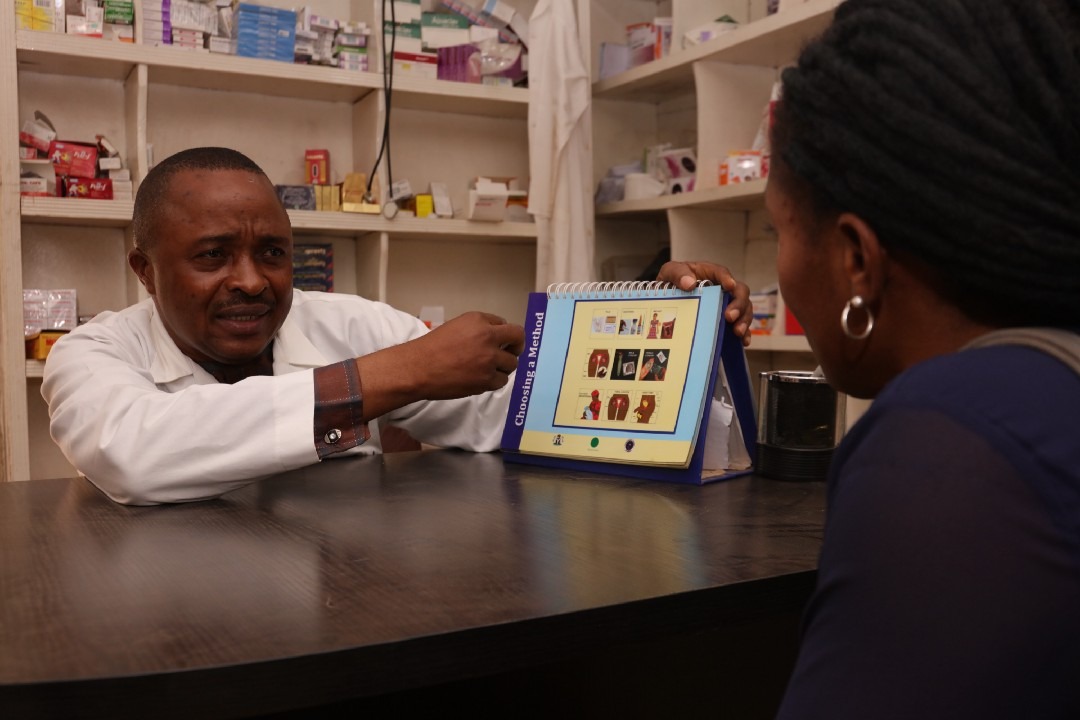By Iyadunni Olubode (Lead Writer)
It has been a rough couple of years for maternal health. COVID-19 dealt a major blow to our health system, setting us back in our efforts to improve care quality and equity to help pregnant women survive and thrive.
In order to sufficiently tackle our nation’s maternal health crisis, however, we must do more than improve care during pregnancy, labor and delivery. We must also expand access to family planning.
Nigeria still has the largest number of maternal deaths globally, accounting for over 20%, the majority of them preventable. Meeting women’s reproductive health needs by broadening access to the full range of modern methods of contraception is widely considered one of the most cost-effective ways to reduce maternal mortality — potentially averting one-third of all maternal deaths by empowering women to plan and space their pregnancies.
IntegratE — a program making tremendous strides on this front — shows us how we can get there. The program demonstrates the opportunities and advantages of working with providers who are part of Nigeria’s informal private health sector, namely the community pharmacies (CPs) and proprietary patent medicine vendors (PPMVs) whom so many women already know and trust but are often not formally considered part of the health system.
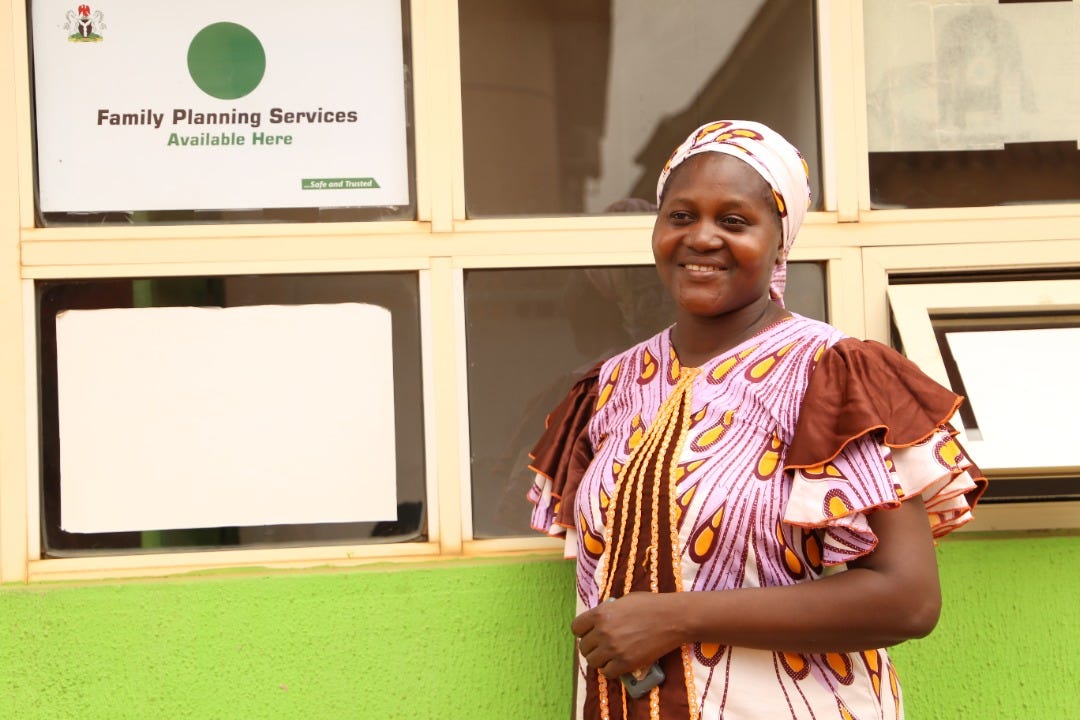
For most Nigerian women, these local private drug shops are their first port of call when seeking primary and reproductive health care services. It makes sense to harness their reach as part of an overall health system strengthening strategy and to leverage that reach to overcome the barriers to access — misinformation, cultural bias, lack of provider knowledge and training — that have kept Nigeria’s contraceptive prevalence rates among the lowest in the world.
In 2019, only 39% of the estimated 14 million women in Nigeria who wanted to avoid pregnancy were using some form of modern contraception, according to data from the Guttmacher Institute. According to Nigeria’s 2018 Demographic Health Survey, only 10.5% of women use a modern contraceptive method with 40.8% of users sourcing them from private sector providers.
IntegratE is a collaborative effort championed by the Pharmacists Council of Nigeria, with the Society for Family Health leading on implementation, with funding support from MSD for Mothers and the Bill & Melinda Gates Foundation. Since its launch in 2017, IntegratE has focused on working with CPs and PPMVs, providing resources and training to improve quality family planning service delivery, first in Lagos and Kaduna as test cases. A pathway to training and accreditation was created for the shop owners — many of whom do not have formal medical training — to drive quality improvement, along with mechanisms for quality assurance. Through a tiered accreditation model administered by the Pharmacists Council of Nigeria, PPMVs are trained, accredited and licensed to offer quality family planning products and services.
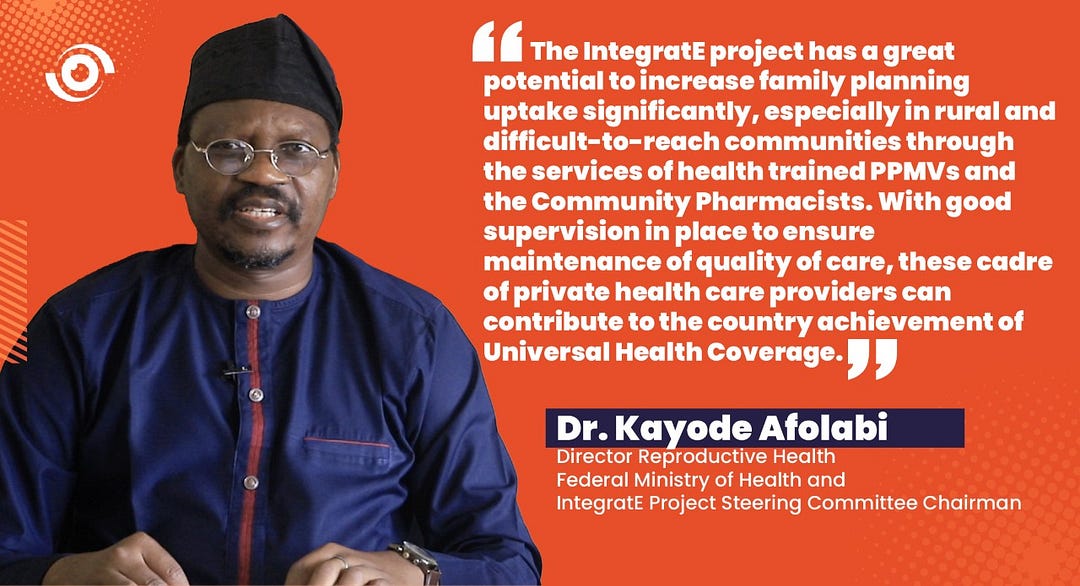
Program implementers worked with over 1,400 CPs and PPMVs in the two pilot states over four years, providing more than 200,000 women with quality family planning services and counseling, with compelling results. Clients reported a high level of satisfaction with services received: 99.5% reported feeling respected by the PPMV providers and 97% felt that confidentiality was ensured.
On the providers side, 94% of PPMVs reported an increase in demand for their services as result of their training. They felt that more people in their communities were confident in their abilities to provide family planning services. (Detailed IntegratE Project Briefs can be found here).
As a result of IntegratE, family planning services data from PPMVs in the two states are now being integrated into the National Health Management Information system, enabling policymakers to have visibility into more data for decision making and planning.
The project has shown that engaging the local private sector in health service delivery, including them in quality improvement efforts, incentivizing them to offer quality care and certifying them for doing so are vital steps toward ensuring increased and more equitable access to quality care in a mixed health system.
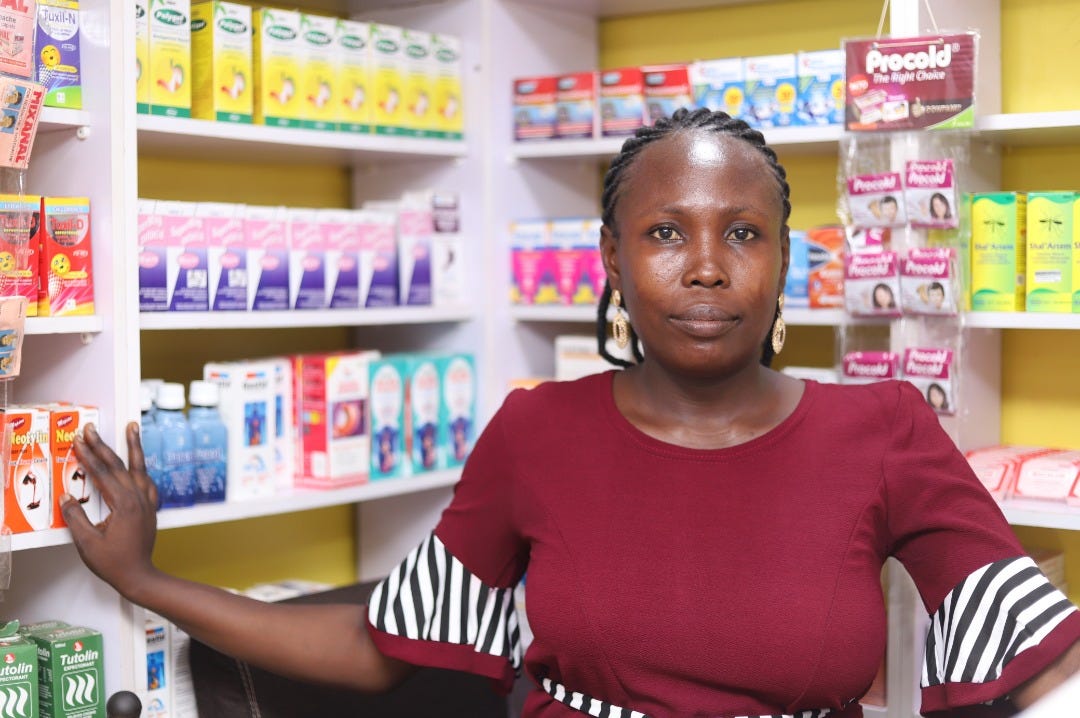
There are a few important lessons here. First, task shifting and task sharing works. Inclusion of CPs and trained PPMVs into the national Task Shifting and Task Sharing Policy has the potential to increase access to quality family planning and primary health care services, especially in harder to reach areas. Second, by integrating the local private health sector we can augment our system’s overall capacity for universal health coverage and help accelerate progress toward reducing maternal mortality. Third, nothing substantive can be achieved without collaboration between the federal, state and local government — and the communities themselves. The IntegratE program secured that support from the beginning and will need that support to bolster sustainability going forward.
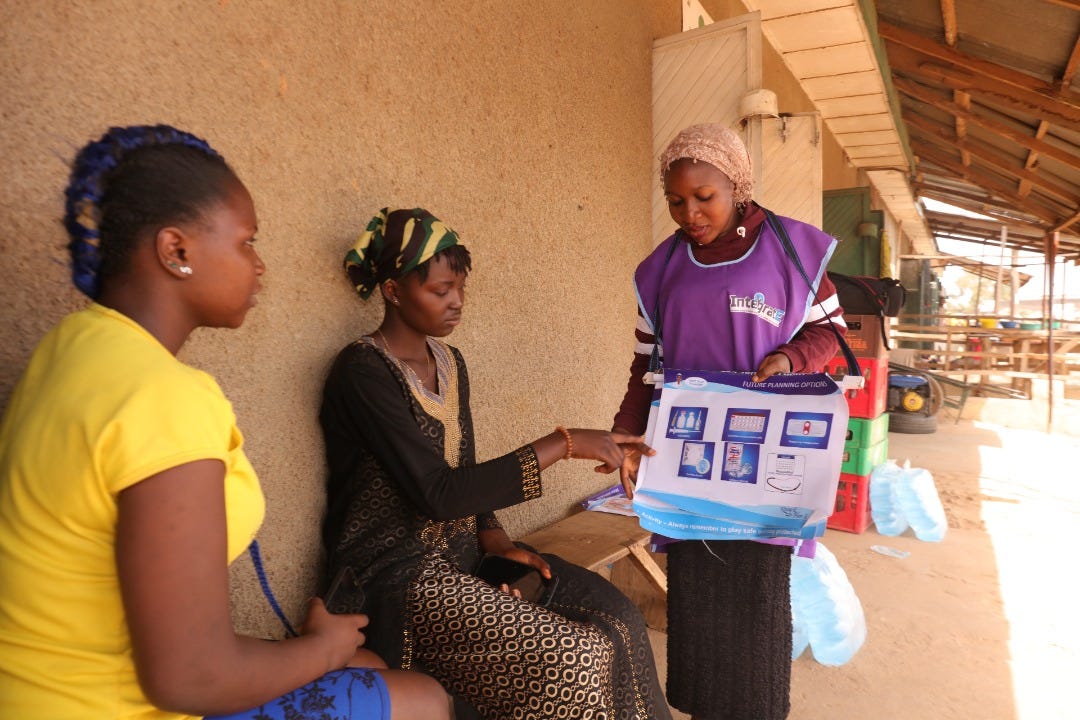
It is time to build on IntegratE’s success — to sustain the effort with continued support from policymakers and other key stakeholders and replicate the approach in other states. To do this, IntegratE, with funding support from the Bill & Melinda Gates Foundation, will better train PPMVs to meet the needs of women and sustain demand for their services, including digitizing training modules so PPMVs are able to access trainings remotely and equipping PPMVs with business and inventory management tools. Additionally, IntegratE will strengthen the coordination capacity of key national and state-level stakeholders to scale and sustain the program over time.
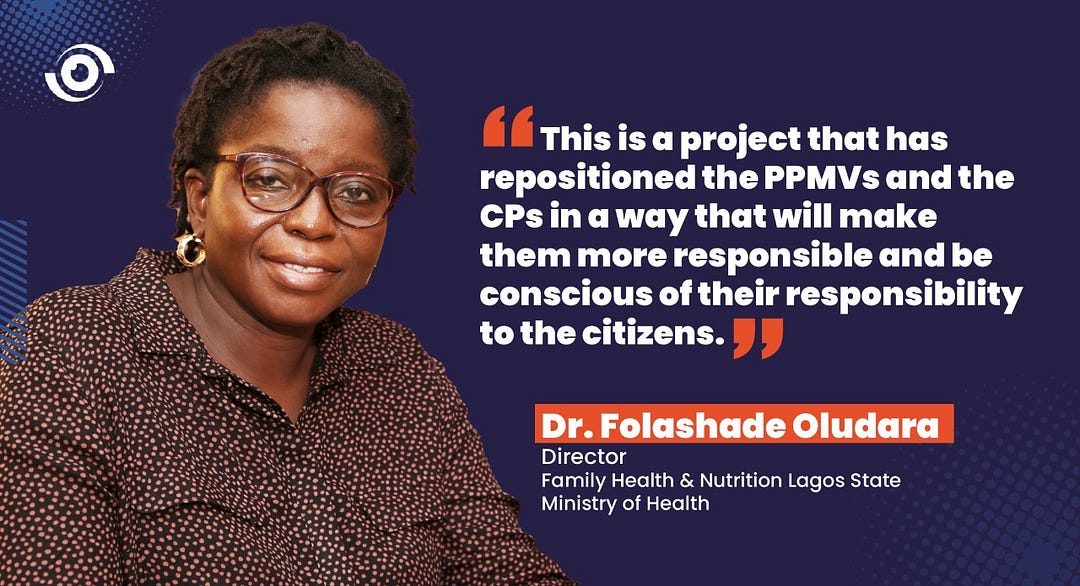
Given what we know about women’s health-seeking behaviors and preferences, armed with these new insights on maximizing engagement with local private health sector, and seeing what IntegratE has been able to achieve to deliver quality family planning services, we know that we must continue to integrate the local private sector into our mixed health care system. As IntegratE expands beyond Lagos and Kaduna, state and local governments must create an enabling environment to train and accredit PPMVs to increase access to quality family planning services, especially in hard-to-reach and underserved areas. At a national level, we must leverage evidence from IntegratE to encourage a revised task-sharing and task-shifting policy inclusive of health-trained PPMVs and CPs — this is an essential step toward increasing access to quality family planning and reducing maternal mortality in this country. So, I call on our decision-makers to take the step with us to help create a world where no woman has to die while giving life.
Iyadunni Olubode is the Nigeria Director for MSD for Mothers, a global maternal health initiative of Merck & Co., Inc., Kenilworth, NJ, U.S.A. The IntegratE Project is a proof-of- concept that Community Pharmacists and Proprietary Patent Medicine Vendors have the capacity to provide a wider range of family planning and primary health care services than they are currently authorized by law to provide. The project is implemented by a consortium of partners led by Society for Family Health and the Pharmacists Council of Nigeria with support from The Bill & Melinda Gates Foundation and MSD for Mothers. Other collaborators include PharmAccess, MSI, Pop Council and PPFN and the project is implemented in Kaduna and Lagos State. To learn more, visit the IntegratE website.


